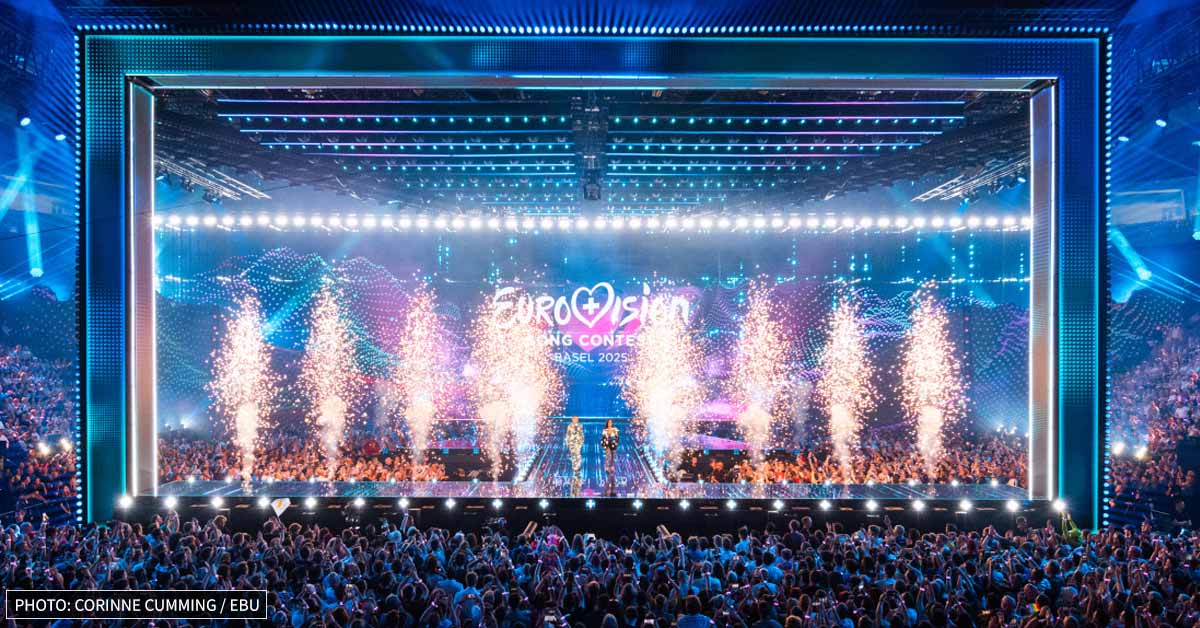Eurovision 2025 viewership figures revealed: dozens of protests, hundreds of thousands of visitors – this is how the festivities looked in Switzerland. Was this the most successful year in contest history?
The city of Basel and the Swiss national broadcaster, SRG SSR, have published a summary of the activities surrounding Eurovision 2025, and the numbers are remarkable: over 500,000 people participated in satellite events and public screenings, around 100,000 visited the main show venues, and 170 million people watched the contest worldwide. Local authorities and the national broadcaster are calling the project a complete success – culturally, in terms of tourism, and for public safety.
“We Fulfilled a Dream – And in a Big Way”
The President of the Basel Cantonal Government, Conradin Cramer, proudly presented the figures and said:
“These are numbers we could only dream of. Our expectations were fully met. My wildest dreams have come true”.
During the week, approximately 100,000 people attended the main competition halls – St. Jakobshalle and Arena Plus – while thousands more filled the streets for the opening events. On the Sunday before the final, the turquoise carpet event featured a festive parade in the city center, attended by tens of thousands.
343,000 Attendees at Public Screenings and Parties
According to the contest organizers, an additional 343,000 people visited side events, live shows, and public viewings held throughout Basel – especially in the Messe and Barfüsserplatz areas. The city hosted dozens of live performances, street parties, and community activities, immersing the entire city in the Eurovision atmosphere.
Susanne Wille, CEO of the Swiss national broadcaster, SRG, thanked all project partners and said:
“We felt that the city of Basel was committed to the project from the very first moment. The atmosphere was peaceful, and the ‘Eurovision spark’ spread throughout society”.
Impressive Viewership: Swiss Ratings Record
One of the most notable achievements of Eurovision 2025 was its impressive global audience – according to official data, about 170 million people worldwide followed the contest, whether the grand final, semi-finals, or related events broadcast via digital and television platforms.
In Switzerland itself, there was an exceptional success in viewership numbers. According to published data, up to 880,000 viewers watched the live broadcast of the final on Saturday night – a remarkable local record in recent years. For comparison, this figure approaches a third of the country’s entire German-speaking population, breaking previous years’ viewership ceilings. The semi-finals also achieved relatively high ratings, particularly among younger audiences.
These figures have a dual significance: on one hand, Basel and the Eurovision production managed to engage the local audience far more broadly than expected; on the other, the event’s media impact in Switzerland and worldwide further strengthened the Eurovision brand as one of today’s largest and most influential television spectacles.
In addition, Switzerland’s high numbers were not unique – according to initial reports from other countries, Germany, Sweden, and Israel also recorded especially high viewership during the final and earlier contest stages. The fact that Eurovision was held in Basel for the first time, integrated into a broad citywide event framework, helped boost engagement both locally and internationally.
Ten Protests – But Security Was Largely Maintained
 Despite protests over Israel’s participation, Stephanie Eymann, head of Basel’s security department, reported the successful implementation of the security plan, which included close cooperation among all enforcement agencies. Ten demonstrations took place in the city during the week.
Despite protests over Israel’s participation, Stephanie Eymann, head of Basel’s security department, reported the successful implementation of the security plan, which included close cooperation among all enforcement agencies. Ten demonstrations took place in the city during the week.
Notably, direct confrontation was avoided between a group of protesters and the Israeli delegation during the opening parade, after 150 people attempted to block their way near Messeplatz. During the final, security forces stopped about 400 protesters who tried to reach the Eurovision Village.
Eymann emphasized public feedback:
“I received a lot of positive responses. People felt safe, and even the security officers were perceived as pleasant and welcoming”.
50,000 Overnight Stays, 95% Occupancy – But Not Everything Was Perfect
Eurovision caused a sharp rise in demand for accommodation—over 50,000 overnight stays were recorded in the Basel area, about 3,000 of which were in private lodgings. City hotels reported 85% occupancy at the start of the week, peaking at 95% for the final. However, even on the night of the final, some rooms remained vacant.
Letizia Elia, head of Basel’s tourism department, said:
“We are very satisfied with the result. […] The teams came as early as April, and the delegations themselves arrived in the city at the beginning of May”.
“Basel Will Benefit for Many Years to Come”
Conradin Cramer expressed hope for the event’s lasting impact on the city, stating:
“The positive images broadcast to the world will continue to serve Basel well beyond Eurovision week. We believe more people will now choose to visit us on weekends – and we will benefit from this for many years to come”.
Source: SRF.
Eurovision 2025: The 69th Eurovision Song Contest was held in Switzerland, following Switzerland’s third victory in history with the song “The Code”, performed by singer Nemo. This was the third time the contest has been hosted in Switzerland, after the competition was held there in 1956 and 1989.


